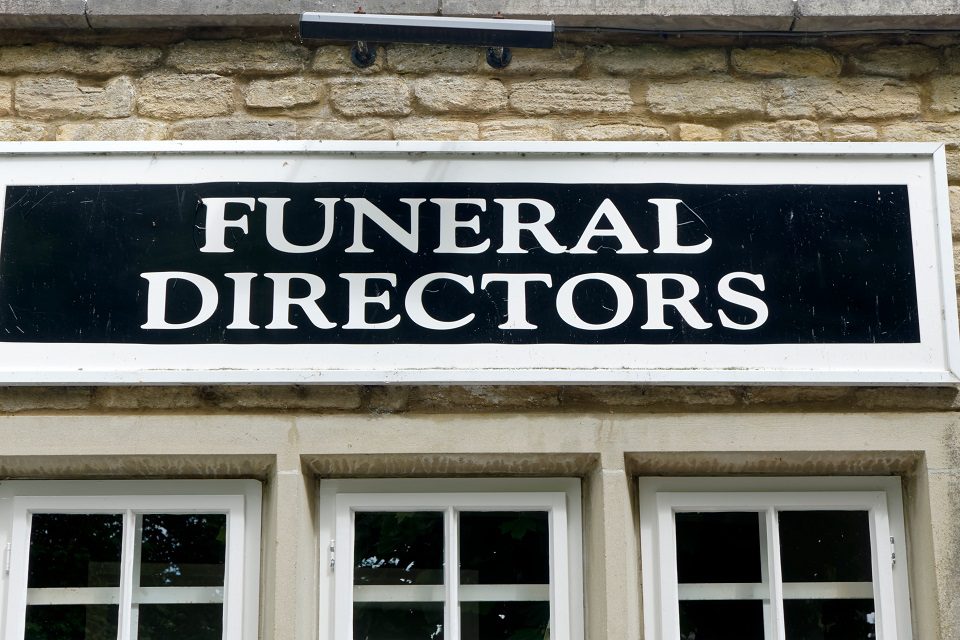Who pays for the funeral of a deceased family member? The family, right? So why spend so much on the dead and on laying them to rest. There are many ways one could fund a funeral without having to spend the whole family’s savings. In this post, we have provided ten different ways to organize a funeral and cut costs to stay out of funeral debts.
Plan ahead
The outcome of any event or occasion is a result of initial planning. After all the grieving from the death of a loved one, we still need to bury them and plan a funeral. The success of the funeral will depend on how early you start the funeral’s arrangement. Start by selecting a coffin, then a venue for the ceremony, and where to be laid.
Usually, this is the first thing anyone does in planning a funeral. An essential tip in reducing the cost of the funeral is going through all the available options. You will be marveled at the prices you will find towards the end of any catalog.

Choose a funeral director
Not all family needs a funeral director. Some people are naturally capable of managing any kind of situation. That being said, if you will be getting a funeral director, we advise you do so by referral. A referral or recommendation from a friend is way better than surfing through the net looking for one.
Though searching for a funeral director by oneself is not a bad idea, but no one wants to be running from one office or company to another in such times. The truth is some funeral directors don’t upload their full quotes on ads, so before hiring them, be sure to request a full quote.

Think about what the deceased would have wanted
When planning a burial, the deceased is the first person to be considered because it is their funeral. So you should ask yourself what this person would have wanted. Maybe an extravagant funeral or a very simple one with a handful of attendants. Once that is settled, and you answer it, you are one step closer to optimizing the funeral funds.
If the deceased mentioned a simple funeral before parting ways, it is clear what you should do. And if it is an extravagant one, you still don’t have to break the vault to plan it. Just take your time and plan ahead.

Seek and accept assistance
It is time to put pride aside and settle old scores. The death of a member brings family and friends together. Extended families and distant relatives might want to take part in organizing the funeral. It doesn’t have to be a request from them. If they’re going to do it, then let them.
You can’t say, a particular person might want to cover the bills of the venue, another one might want to take the responsibilities of providing refreshments if it will be required. Well, not everyone is capable of assisting financially. Some render help in kind. If anyone makes themself available, be ready to accept the help.

Explore your options and consider other alternatives
It is not compulsory or written in any law that a particular method must be followed in laying the dead. Suppose a specific way doesn’t fit your budget, strike it out and examine the next option. Using a funeral director is not a must, though it pays in some situations. If you are confident you can organize and manage it, then it should be left out.
Direct cremation involves burning and extracting the ash of the deceased. This kind of burial doesn’t require a funeral service, meaning fewer people are in attendance. Lower population means less sitting capacity, which means a smaller venue or no venue as the case may be. This will indeed reflect on the cost.

Pick the right location
There is a very big difference between a cemetery and a crematory, which is glaring in their prices. The cemetery costs more because there is the cost of acquiring the land. However, if you choose to lay your loved one in a cemetery, there are several cemeteries around that might not even cost up to half of the average price.
Cremation, on the other, is cost-effective, but there are factors like storage and embalming, the placement of the ash, and the cremation process that all affect the price of cremation. Embalming is quite expensive, so you might want to skip storage and embalming and go for direct cremation.

Consider the miscellaneous
Prioritize items of the event. Some things are just compulsory, say a coffin or the location for the funeral service, while some are necessary. Music, food, or even a photo slide of the deceased is necessary; though they can be ruled out and their cost can be optimized, they are meaningful.
There are also irrelevancies as they don’t really add any or mean any significance. They just portray wealth.
Talking about a limousine for transport, high-priced catering services, imported bouquets, over expensive locations may look classy and all. Still, if you don’t have sufficient funds to cover them, you might have to take a loan. So, ask, “Are these necessary?”

Get more than one quote
If you are hiring a funeral director, you should not place all your eggs in a basket. Look for another funeral director and another one, as many as you can get. Though it may seem like you are hiring different funeral managers, most of them offer their quotations for free.
Now, what do you do? Get their quotes together, breakdown down the quotation, and compare their prices.
Individual items in a particular estimate may cost less when compared, but they may end up the most expensive after factoring in other costs. Find out what each has to offer, their rates, and if what they offer matches your requirements.

Donation to medical school
This is more of a preventive scheme on the side of the family of the deceased. If the deceased’s family is a donor to a medical school, be it a one-time donor or a frequent one. The family has little or nothing to worry about for the funeral ceremony.
Why? Most medical schools cover the costs of the funeral service of their donors, and if you the family will have to be, it will be just for transportation and probably handle the remains.
Since cremation occurs almost immediately after death, the deceased’s body won’t be available for a funeral service. But with the proper arrangements, a memorial service can later be arranged.

Life insurance
Similar to the preceding tip, it is a very effective investment plan for the deceased’s funeral. If the departed had life insurance before his death, the family might not have to pay for the funeral service.
Another question arises here; how? It depends on the insurance plan. If the insured included burial insurance in his life insurance plan, then the company is responsible for the final arrangement of the deceased.
Burial insurance might cause a delay in the funeral service because of the submission of certain documents. Burial or life insurance is only possible before death happens. This is why it is a preventive method against overspending for funerals.

Conclusion
Funeral directors and planners make a livelihood out of what they do, but notwithstanding, you should understand the depth of what you want to do so you don’t get cheated.
No one wants to go through the process of not only having to say goodbye to a loved one but having to make the necessary arrangement to lay them to rest.
The last thing you want to be lumber with is a lot of debt. We hope this has helped you so when that tragic event happens in your life, you can concentrate on saying your goodbyes.
You might also want to read:
- 10 Best Ways to Save Money on Expensive Funeral Costs
- 5 Tips for When You Can’t Pay Your Medical Debt












